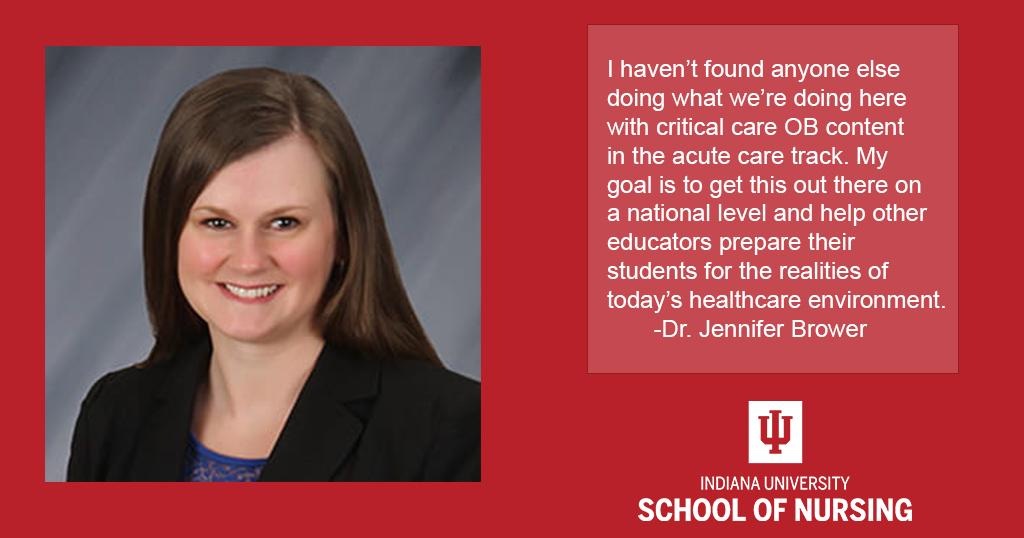Jennifer Brower, DNP, APRN, ACNP-BC, CCRN, is spearheading transformative projects in nursing education at the Indiana University School of Nursing, driven by funding from two significant sources: a Curriculum Enhancement Grant from the Center for Teaching and Learning and the Richard and Diane Billings Faculty Award from the Indiana University School of Nursing. Brower, an experienced clinical assistant professor and coordinator of the MSN Adult Gerontology Acute Care Nurse Practitioner (AGACNP) track, is passionate about integrating cutting-edge technologies and enhancing curriculum to prepare future nurses for the complex demands of acute and critical care.
One of Brower’s most groundbreaking projects involves the use of high-fidelity simulation paired with interactive whiteboard technology to enhance simulation debriefings for her students. With funding from the Richard and Diane Billings Faculty Award, Brower introduced the whiteboard technology to create a more immersive and hands-on learning experience. "It’s like something out of CSI," she says, describing how students can manipulate digital versions of diagnostic tools, such as X-rays and lab results, during debriefings. "They can enlarge images, move things around, and interact with the data directly on the board. It transforms what used to be static debriefs into dynamic, real-time problem-solving sessions." This innovation allows students to engage more deeply with clinical cases, improving their critical thinking and diagnostic reasoning skills, especially in high-stakes, acute care scenarios.
This interactive approach allows students to visualize and deconstruct critical care cases in a much more meaningful way. Instead of passively listening to a debrief, they can actively participate by moving and annotating key clinical data, enabling them to synthesize and apply their knowledge more effectively. This technology enhances critical thinking and reinforces clinical decision-making skills, especially for cases involving obstetric patients in acute settings—an area where Brower sees a critical need for enhanced training.
The integration of obstetric content into the AGACNP curriculum is another one of Brower’s groundbreaking contributions. With the support of the Curriculum Enhancement Grant, she has developed a series of high-fidelity simulation scenarios that focus on acutely ill obstetric patients, an often-overlooked area in critical care training. Indiana’s high maternal mortality rate motivated Brower to bring more focus to this vital issue. "We want to do our part to change that, to turn it around," she explains. "It’s important to give our students the tools and confidence to manage these complex patients. I’m not expecting them to be experts, but I want them to leave here with the foundational knowledge they need to feel comfortable starting care and knowing who to call for help."
Brower’s innovative curriculum has already shown promising results. In a pilot study conducted last year, her team surveyed students’ knowledge and confidence in critical care obstetrics before and after implementing the new content. The findings were statistically significant, showing clear improvements in both knowledge and self-efficacy. Brower and her team plan to continue gathering data over the next five years, comparing results from pre- and post-grant implementations to further assess the long-term impact of her enhancements.
Looking ahead, Brower is eager to share her findings with a broader audience. She has already presented her work at national conferences and hopes to continue disseminating her research. "I haven’t found anyone else doing what we’re doing here with critical care OB content in the acute care track," she says. "My goal is to get this out there on a national level and help other educators prepare their students for the realities of today’s healthcare environment."
Jennifer Brower’s work exemplifies the potential of innovative, evidence-based teaching practices to shape the future of nursing education. Through her projects, she is preparing her students to face the challenges of acute care with confidence, compassion, and critical thinking skills.


